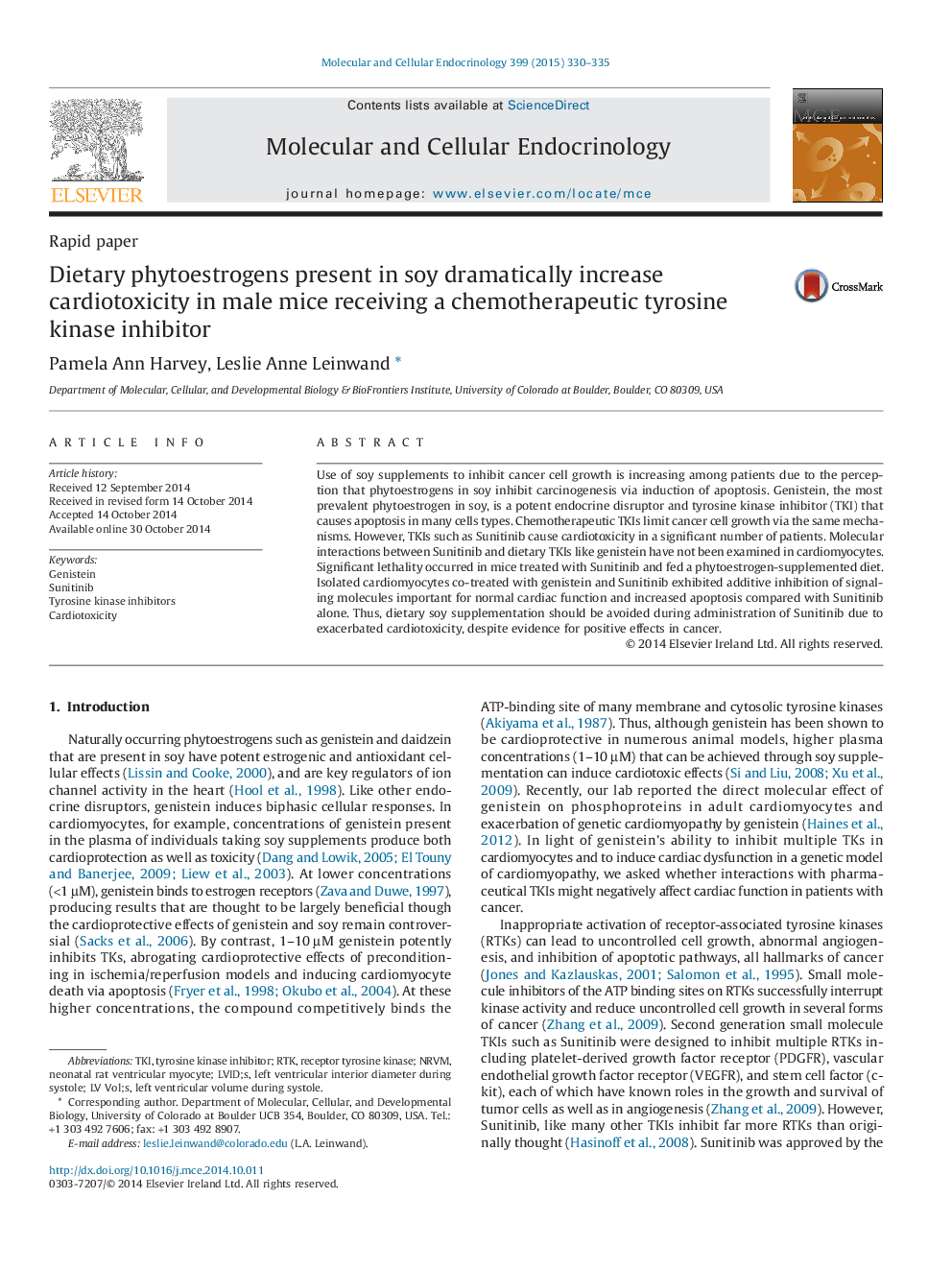| Article ID | Journal | Published Year | Pages | File Type |
|---|---|---|---|---|
| 2195982 | Molecular and Cellular Endocrinology | 2015 | 6 Pages |
•Sunitinib and dietary phytoestrogens produced decreased cardiac function in mice.•Sixty percent of mice receiving oral Sunitinib and dietary phytoestrogens died.•Sunitinib and genistein induced additive TK inhibition in cardiomyocytes.•Dietary soy supplementation should be urgently assessed in patients receiving TKIs.
Use of soy supplements to inhibit cancer cell growth is increasing among patients due to the perception that phytoestrogens in soy inhibit carcinogenesis via induction of apoptosis. Genistein, the most prevalent phytoestrogen in soy, is a potent endocrine disruptor and tyrosine kinase inhibitor (TKI) that causes apoptosis in many cells types. Chemotherapeutic TKIs limit cancer cell growth via the same mechanisms. However, TKIs such as Sunitinib cause cardiotoxicity in a significant number of patients. Molecular interactions between Sunitinib and dietary TKIs like genistein have not been examined in cardiomyocytes. Significant lethality occurred in mice treated with Sunitinib and fed a phytoestrogen-supplemented diet. Isolated cardiomyocytes co-treated with genistein and Sunitinib exhibited additive inhibition of signaling molecules important for normal cardiac function and increased apoptosis compared with Sunitinib alone. Thus, dietary soy supplementation should be avoided during administration of Sunitinib due to exacerbated cardiotoxicity, despite evidence for positive effects in cancer.
